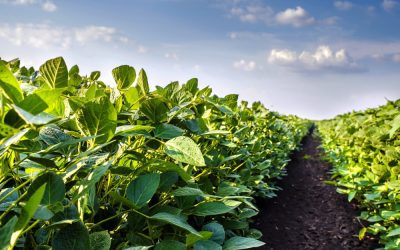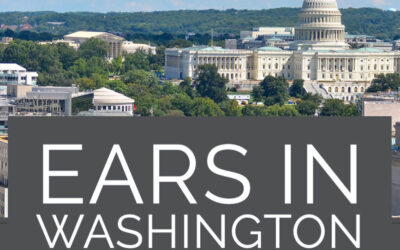ASA’s policy work attempts to protect growing demand for U.S soy
It seems you can’t open a news outlet without reading about how the demand for U.S. soy is rising to record levels. While growers begin planting to meet this demand domestically and internationally, the American Soybean Association and its farmer leaders are working to advocate for soy policy priorities at the state and national level that provide growers with the tools to meet market needs.
Listed below are just a few of the priorities we’ve been working on recently.
EPA denies backlogged SREs
On April 8, the U.S. Environmental Protection Agency (EPA) announced that close to three dozen small refinery exemptions granted by the previous administration in 2019 and later remanded by the U.S. Court of Appeals for D.C. back to EPA have been denied.
During the past few years, soy growers and biofuel leaders have repeatedly voiced concerns over the abuse of small refinery waivers and that excessive use of small refinery waivers undercuts the purpose of the RFS.
ASA president Brad Doyle, a farmer from Arkansas, commented on behalf of the organization, saying, “We appreciate EPA denying these waivers from 2018. While we wish the SRE petitions were resolved sooner, we are very glad EPA is working to remove the backlog of pending waiver requests and is requiring refineries to comply with more stringent hardship and economic impact reporting requirements.”
While the announcement was on face value positive, EPA is allowing an alternative option for the 31 refineries impacted to meet their new 2018 compliance obligation without any further need to procure or redeem additional compliance credits.
Those 31 SREs represent roughly 1.3 billion gallons of biofuels, demonstrating that SRE volumes can quickly add up and risk undermining the integrity of the RFS—and why EPA continuing to deny waivers is important to the biofuels industry.
The agency is still working through 69 pending SRE requests from refineries dating from 2016 to 2021. The Biden administration is also working to finalize renewable volume obligations under the RFS for 2020, 2021 and 2022 by this summer.
“We appreciate EPA denying these waivers from 2018. While we wish the SRE petitions were resolved sooner, we are very glad EPA is working to remove the backlog of pending waiver requests and is requiring refineries to comply with more stringent hardship and economic impact reporting requirements.”
– ASA president Brad Doyle
ASA seeks WOTUS ruling
In April, ASA and other groups submitted a joint amicus brief to the U.S. Supreme Court in the case of Sackett v. EPA, in which the court will consider the proper test for determining whether wetlands are “waters of the United States” under the Clean Water Act.
EPA and the Army Corps will continue with their WOTUS rulemaking while the case is underway. This is in spite of numerous requests from Congress and industry to pause the effort, as the court’s ruling – likely in late 2022or early 2023 – will almost certainly influence what may be included in the regulation.
Joining ASA on the brief (14 amici total) are Farm Bureau, American Sheep Industry, Sugar Alliance, Family Farm Alliance, NAWG, NCGA, National Council of Farmer Cooperatives, NPPC, Fertilizer Institute, Egg Producers, USA Rice, and U.S. Poultry and Egg Association.
While ASA believes the court will rule favorably and adopt a wetland determination test that works for agriculture, this amicus brief is aimed at getting a majority of justices to go an important step further by making clear to the agencies that their tactics are unacceptable.

Judicial deference to agencies is the norm, but the focus of this brief is to show that the agencies have abused their authority in the WOTUS area and that the court should make clear that prior case law should actually exclude much of what the agencies have tried to label as WOTUS.
The brief outlines the plight of agricultural producers faced with overbroad and vague WOTUS standards, argues that the court cannot trust the agencies to implement its holding unless that holding is precise and clear, and calls for a stern warning from the court to the agencies to stop evading its rulings.
Trade to Indo-Pacific region
ASA and the U.S. Soybean Export Council (USSEC) provided comments to U.S. Trade Ambassador Katherine Tai regarding the proposed Indo-Pacific Economic Framework (IPEF).
The U.S. soy industry welcomes efforts within the Indo-Pacific region to expand market access through the resolution of non-tariff barriers (NTB). NTBs are increasingly causing uncertainty for U.S. soybean exporters, and the IPEF provides an opportunity to address these barriers and improve the regulatory processes that lead to them.
The comments point out that NTBs are sometimes imposed to satisfy domestic demands for protection or in response to misplaced safety concerns, but many NTBs inadvertently restrict trade because of more benign issues like regulatory misalignment, regulatory uncertainty, or unclear and opaque processes. These barriers can have devastating effects on trade, and robust negotiating objectives for the IPEF should include efforts to resolve these NTBs.
The U.S. soy groups reference trade agreements such as the United States-Mexico-Canada Agreement (USMCA) and Trans-Pacific Partnership (TPP) as successful examples of how economic cooperation can promote science-based sanitary and phytosanitary requirements, good regulatory practices, and appropriate regulation of agricultural biotechnology.
Posted: June 1, 2022
Category: Indiana Corn and Soybean Post - Spring 2022, ISA, News




